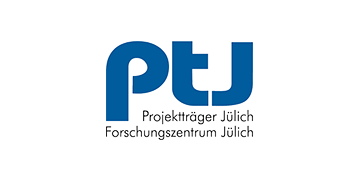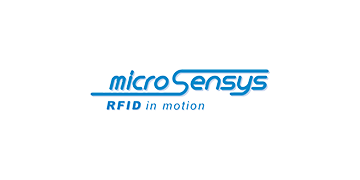| Theme | Industry 4.0, XXL products |
|---|---|
| Project title | Condition monitoring of marine gearboxes based on wireless, energy-autonomous sensor nodes (CoMoGear) |
| Project duration | 01.08.2016 – 30.06.2019 |
| Download | |
| Press release |
Cost-effective condition monitoring of highly stressed components in marine transmissions is the aim of the research project CoMoGear. For this an energy self-sufficient and wireless sensor network is developed. Miniaturized sensor nodes monitor torque, rotational speeds, temperatures as well as the wear condition of the torque transmitting components. The energy needed to operate the sensors is obtained from the environment, for example by using the generator principle at the input or output shaft. Thus, the system operates wirelessly and without an external energy supply, whereby the installation and maintenance costs decrease significantly. Sensor and radio technology and autonomous energy supply are to be brought together to a condition monitoring system (CMS) in the course of the research project. In addition, a demonstrator shall be developed.
- Sorry, no events available.
Vergangene Termine gefunden
- 24.08.2016, 13:00 h - 15:30 h
- HSG-IMIT, Institut für Mikro- und Informationstechnik, Wilhelm-Schickard-Str. 10, 78052 Villingen-Schwenningen
- 18.01.2017, 11:00 h - 14:00 h
- IPH – Institut für Integrierte Produktion Hannover gGmbH, Hollerithallee 6, 30419 Hannover
- 16.02.2017
- Telefon
- 17.03.2017
- Telefon
- 21.04.2017
- Telefon
- 11.05.2017, 10:00 h - 14:00 h
- Reintjes GmbH, Hameln
- 27.06.2017
- Telefon
- 03.08.2017
- Telefon
- 06.09.2017, 10:00 h - 14:00 h
- Mircosensys GmbH, Erfurt
- 06.11.2017
- Telefon
- 01.12.2017
- Telefon
- 17.01.2018, 10:00 h - 15:00 h
- IPH (Seminarraum), Hollerithallee 6, 30419 Hannover
Publications about the project
Within the project "CoMoGear - Condition Monitoring of Marine Gearboxes based on Wireless, Energy-Autonomous Sensor Nodes", an energy-autonomous, wireless sensor network was developed for condition diagnosis of highly stressed rotating components in marine gearboxes was developed. This allows intelligent, condition-based monitoring and maintenance, paving the way for unmanned shipping.
sensor nodes, condition monitoring, marine gearbox, energy harvesting
Within the CoMoGear project, an energy self-sufficient wireless sensor network for the condition monitoring of highly stressed rotating components in marine gearboxes was developed. This sensor network consists of several sensor nodes and energy harvesters.
sensor nodes, condition monitoring, marine gearbox, energy harvesting
In this paper, the validation of an inductive sensor for an energy self-sufficient sensor for condition monitoring of wet-running steel disc clutches in marine gearboxes is presented. For a reliable operation of these a permanent monitoring of their state is advisable. As part of condition-based maintenance, more and more sensors are being installed in machines. Reliability becomes even more important when people are endangered by possible failure of the machines. In shipping, it is essential that, for example, the powertrain and thus the transmission are in perfect condition. In case of long distance traveling, wear or even damage of important components has to be known so that maintenance can be carried out proactively. To address this need an energy self-sufficient and wireless sensor network is developed. Miniaturized sensor nodes monitor torque, rotational speeds, temperatures as well as the wear condition of the torque transmitting components. The energy needed to operate these sensors is obtained from the surrounding environment. Thus, the system operates wirelessly and without an external energy supply, whereby the installation and maintenance costs decrease significantly. In addition to the concept of sensor integration in the transmission, the energy harvesting concept is also described in more detail. Finally, measurements are taken in a gear-like environment and the behavior of a magnetoinductive sensor in a not constantly supplied situation has been examined.
ship, gearbox, wear, sensor, torque
This paper describes the development and prototypical implementation of an energy self-sufficient sensor for condition monitoring of wet-running steel disc clutches in marine gearboxes. For the precise control of an automated system and the monitoring of its performance, the knowledge about the possible wear is an essential prerequisite. In addition, the storage of sensor data over the life of the system offers the possibility of long-term condition monitoring. The combination with various other technological components creates a solution that enables cost-effective condition monitoring of marine gearboxes. Compared to existing systems, for example, the costs for installation and maintenance are significantly reduced. Both the methodology from the morphological box to the fine concept as well as the first measurements of the sensors are presented.
automated system, condition monitoring, metrology, clutch, gearbox
Rotary energy harvesters offer the possibility of generating energy in the center of rotation or outside of the center of rotation. There are both concepts with reference to the outer housing as well as different concepts without a fixed reference. In addition, Energy Harvester solutions are available that provide energy to the housing and generate energy through the rotation of the shaft. The selection of a concept must be made individually for each application and depends on various influencing factors. Decisive in particular are the installation space, the energy requirement of the sensor node and the speed.
energy supply for microsystems, energy harvesting, rotary energy harvester, power management
Marine gearboxes ensure the reliability of the entire ship. Therefore a timely maintenance is crucial. To decrease maintenance costs and increase security, IPH develops a wireless and energy-autonomous measurement system to monitor marine gearboxes from afar.
gearbox, ship, condition monitoring, maintenance








